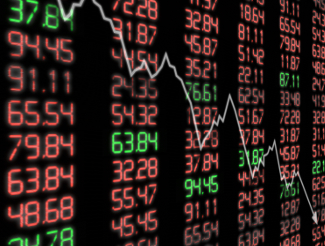Those of us who criticize the Federal Reserve’s conduct of monetary policy are often ignored and sidelined during boom times. We’re supposedly the ones who are crashing the party, harshing the market’s vibes, always predicting doom and gloom. Well, there’s a reason for that, and that’s because the Fed’s inflationary monetary policy will always end in a recession or depression. A boom that is artificially induced through creation of new money and credit will always end in a bust, just as sure as night follows day. When exactly that bust will occur is always open to debate, but more and more signs are indicating that we’re within a year or so of another major downturn, and this one could make 2008 look like child’s play. Are you prepared?
Stock Markets Can’t Break Through
While stock markets made it back to record highs last month, the Dow Jones still couldn’t break the psychological barrier of 27,000 points. And with October’s reputation for weakness in stock markets, that barrier isn’t likely to be broken anytime soon. There are anecdotal reports that the recent resurgence has more retail investors piling into stock markets, sure that more gains are coming, but those investors will likely find that they’re too late to the party.
Declining Trade
Tariffs enacted by the Trump administration and the retaliatory actions by the Chinese government have already impacted trade flows between China and the United States. With no resolution in sight and the promise of higher tariff rates come January, the trade situation will only get worse. Automaker Ford has already announced plans to lay off 12 percent of its global workforce, as the tariff situation has already cost the company $1 billion. Further escalation of tariffs will ensnare more companies, leading to more layoffs and decreased production throughout the economy.
Interest Rates Spiking
Interest rates have finally begun to rise sharply as more and more institutional investors are removing their rose-colored glasses. The yield curve is beginning to widen again as yields on 10-year Treasuries have risen 33 basis points (over 10%) since the beginning of September. Rising bond yields will wreak havoc on businesses that have relied on low interest rates to fund their operations for the past decade. They will also drive up the government’s cost of servicing its debt, which will harm taxpayers down the road.
All of this adds up to a very bad situation coming up very soon. Within the next year or two, stock markets will decline, bond yields will spike even higher, and investors who haven’t protected their assets will lose their shirts. The dotcom bubble saw many investors who bet everything on stocks losing 70-80% of their investments, while the financial crisis saw markets overall down 55-60%. Unless investors take the right steps to protect their assets today, they could very well end up suffering just as much as during the last two stock market crashes.
This article was originally posted on Goldco.




